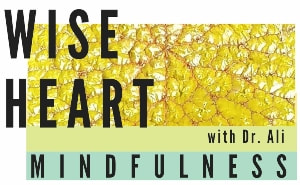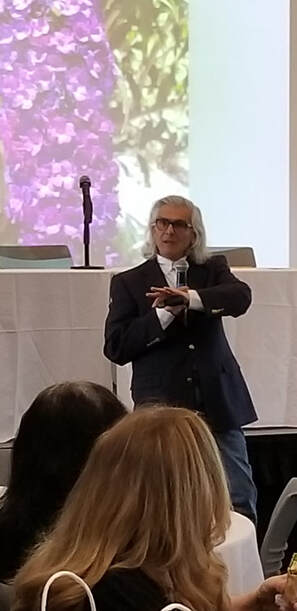Mindfulness in the Workplace
K-12, Higher Ed, Corporate and Non-Profit Programs
|
Dr. Ali brings 42 years of leadership, consulting, and teaching experience to the field of mindfulness. He and his partner of 33 years, Dr. Loretta Rahmani, co-founded Kaleidoscope Leadership Consultants in 1995 - a private leadership consulting company. Together they have consulted and provided leadership development seminars to a wide range of institutions including the University of California (UC), California State University (CSU), Community College systems, Private Colleges, and in the for-profit and non-profit business sectors.
If you would like to bring Mindfulness to your workplace or wish to explore it further, please contact Dr. Ali at [email protected].
|
Why Mindfulness for your Workplace?
As organizations invent new models, approaches, and methodologies to navigate multiple and intersecting challenges brought about by the global impact of the pandemic; human caused acceleration of climate change; the freighted legacies of systemic and structural barriers to attaining justice, equity, diversity, and inclusion (JEDI) in the workplace; and as social, cultural, political, and economic factors increasingly impinge on the workplace, organizations find themselves in states of perpetual turbulence and on-going radical change. These demands are keenly felt and experienced in both the workplace as well as in team members’ personal lives. What is needed in the workplace in times of high stress, uncertainty, and overwhelm is more integration, more connection, more belonging, and more commitment to cultivating the language-of-the-heart as a core feature of workplace life. What is needed is Trauma Sensitive Leadership (TSL), a term I use to account for the radical and intersecting multiplicity of national/global traumas animating the current workplace experience. Mindfulness is one important means to support workplace teams as they navigate perpetual change and radical stress states. There is robust scientific research that supports the claims that mindfulness reduces stress, boosts the immune system, reduces emotional reactivity, increases self-regulation, and promotes health and well-being. Furthermore, Mindfulness promotes organizational EQ (Emotional Intelligence). Indeed, in a world of rapid and discontinuance change, it is EQ - not IQ - that is the litmus test for effective, impactful, heart-full leadership. Mindfulness supports increased productivity and ROI by 1) improving focus, attention, and concentration; 2) enhancing creativity; 3) cultivating synchrony (mind/body/heart integration); 4) increasing clarity and open awareness (seeing the forest for the trees); and 5) fostering positive emotions such as kindness and compassion. Wise Heart Mindfulness offers multiple options for organizations to bring Mindfulness into your workplace eco-systems and to learn first-hand the Return on Investment (ROI) of Mindfulness in the workplace. Here are examples of Mindfulness program options to fit within your organization’s schedule and interests:
*For pricing and availability, please contact Dr. Ali at [email protected] or call 951-295-5091.
|
“We go to work. But it is our soul we put into it.”- David Whyte (1994), The Heart Aroused: Poetry and the Preservation of the Soul in Corporate America |
“You cannot manage other people unless you manage yourself first.” - Peter F. Drucker |
“What if leadership was defined by compassion rather than authority? What if power was granted rather than forced? What if a great leader was a mindful leader?” – Mindful Leadership Conference (2017) |
“The “brain” is not just in our heads…the heart has an extensive network of nerves that process complex information and relay data upward to the brain in the skull.” - Mindsight (2011), Dan Siegel |

